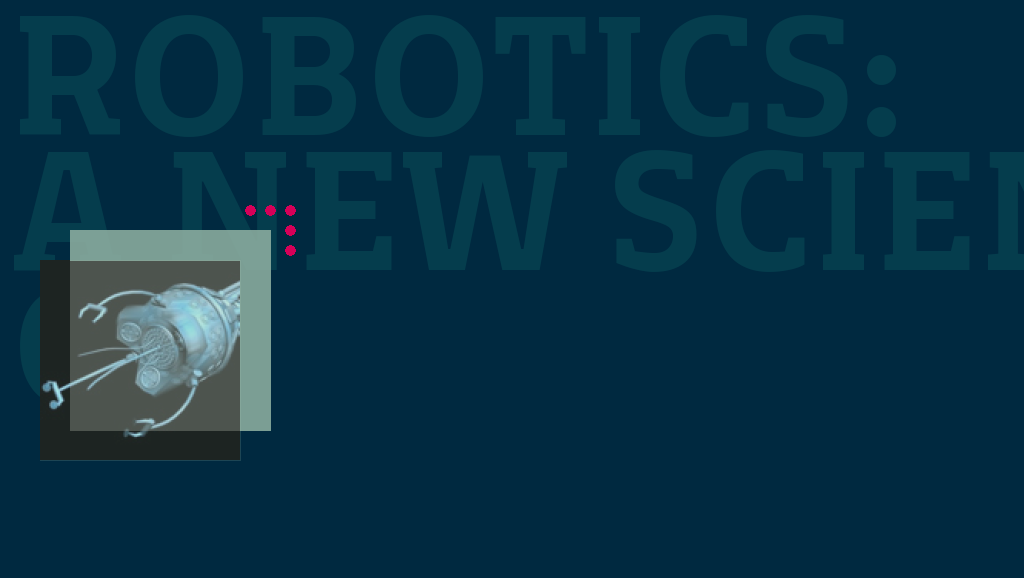The International Symposium “Robotics: a new science” takes place on Wednesday 20th of February 2008 at Accademia Nazionale dei Lincei in Via Della Lungara 10 in Rome. The conference is not conceived as a technical workshop, but as a seminar whose aim is to discuss the current robotics development in the frame of the general history of machines, of Automation and Control, of Wiener’s Cybernetics, and of the Artificial Intelligence. I have put some questions to Fiorella Operto, member of the organising committee, on behalf of the Bassetti foundation.
Jonathan Hankins:
Which in your opinion are the aspects of responsibility that current developments in robotics should highlight?
Fiorella Operto
In the course of the present century, intelligent autonomous machines will gradually substitute many automatic machines, which will become more and more intelligent and autonomous.
We will witness a robotic invasion, as the figures of the annual World Robotics Survey demonstrate, showing a steady tendency for growth.
At the same time, the application field for robots is widening, and robots are coming out of the factories and entering our homes. The robot is becoming a partner and a companion.
In the next decades in the Western world – in Japan, United States and Europe – humanoid robots will be among us, companions to the elderly and children, assistants to nurses, physicians, firemen and workers.
They will have eyes, human voices, hands and legs; skin to cover their gears and brains with multiple functions. Often, they will be smarter and quicker than the people they ought to assist.
Placing robots in human environments inevitably raises important issues of safety, ethics, and economics. What is going to happen when these smart robots are our servants, and when our lives will depend on them? Could ill-intentioned people use these robots to harm others?
And, what about robotics applied to war and to weapons? Or, think about to the next generation of robotic prostheses.
I think that we are still in time, because the robotics invasion is going to happen and most of the problems have not yet arisen in society. But we need to work hard because military applications are already under development, and some of them are already employed in the theatre of war.
Jonathan Hankins:
As you know Professor Ronald Arkin has been recently interviewed on our web site by Jeff Ubois on robotics and responsibility. Professor Arkin speaks about robotic warfare in ways that could be disturbing to some, and I would like to ask in which other realms of action do you think that robotics becomes an issue of responsibility in innovation?
Fiorella Operto:
The acknowledgment of the ethical and societal implications of science & technology is quite recent.
Only in the second half of the XX century, and following the tough debate among physicists on the use of the nuclear bombs unleashed against the Japanese population, have scientists working in critical fields of science and technology started to carefully consider the ethical aspects and the effects on society of their research.
Much has been said in the field of Nuclear Physics, and today the debate on Genetic Engineering is hot. However, the debate on Roboethics is at the beginning.
Within the robotics community we mainly find three positions:
NOT INTERESTED IN ETHICS:
This is the attitude of those who consider that their actions are strictly technical, and do not think they have a social or a moral responsibility in their work.
INTERESTED IN SHORT-TERM ETHICAL QUESTIONS:
This is the attitude of those who express their ethical concern in terms of “good” or “bad,” and who refer to some cultural values and social conventions.
INTERESTED IN LONG-TERM ETHICAL CONCERNS:
This is the attitude of those who express their ethical concern in terms of global, long-term questions: for instance, the “Digital divide” between South and North; or young and elderly.
Actually, the result of three years of debate is that an increasing number of scientists and scholars, but also of the laymen, are interested in Roboethics.
The evidence of this is the Technical Committee born within the IEEE Robotics and Automation Society, which organised a couple of workshop on the subject.
The discussion crosses borders between experts, when not only robotic scientists, but also philosophers, jurists, sociologists and many scholars become involved in roboethics.
Jonathan Hankins:
As you can see from our current homepage, we are presently engaged in frontlining the EU report on science and governance. How do you think your conference will contribute to the discussion about the governance of technology?
Fiorella Operto:
I believe that roboticists should get a sense of their creative potential and of the importance of their scientific contributions, with method and rigor. We have to stop being technological gadgets’ worshippers.
We have to face the world’s difficult situations, from the pollution of the planet to the designing and building of a better society.
This, I hope, will be the commitment which will come out from the Lincei Robotics conference.
















